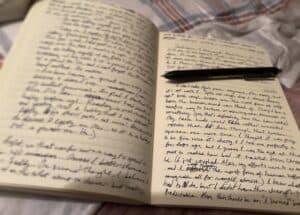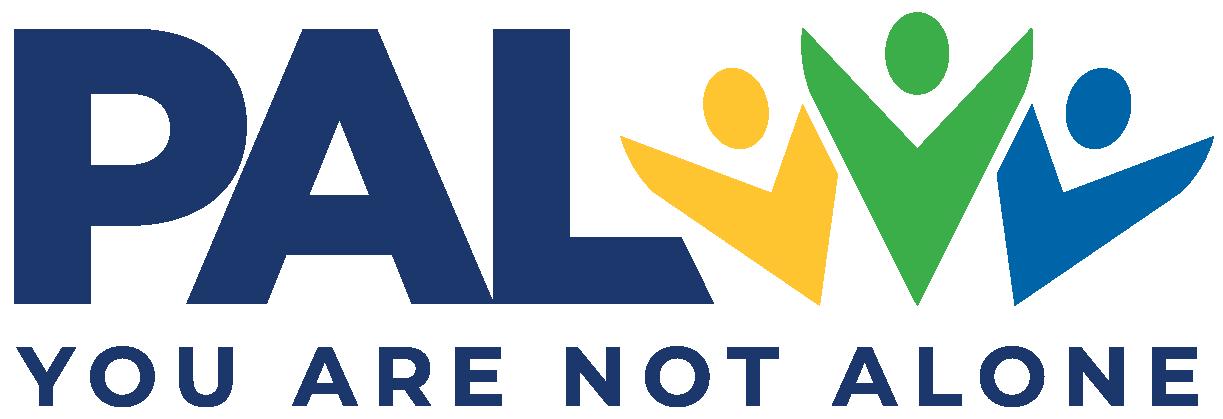
2013
Bruised, broken, emaciated, exhausted, and sick. I’m using meth and heroin in a hotel room in Glendale. I’ve been up for three days; when I look at the carpeted floors, they vividly appear to be alive with crawling bugs. I close my eyes and try to remind myself that what I’m seeing is not real.
I’m with my brother. We decide we need a break from the confines of the grimy, stuffy hotel room and make our way outside to smoke. The heat wears on us quickly so we sit in his car with the air conditioning on. I take Xanax as he lights a joint and it’s the last thing I remember.
Banging. Knocking. Searing, brazen sunlight. It’s no longer the middle of the night; and I’m awoken by some incessant noise. Sound is being issued from the fist of a police officer banging on the car door.
The officer is asking me to open the door. We passed out. There’s nowhere to go and nothing left to do so I unlock and open the door and step out into the oppressive heat and what I’m slowly beginning to understand this may be the end of my immediate freedom.
I’m handcuffed and searched which produces Xanax, heroin, and paraphernalia. Somebody reads me my rights but I’m not paying attention. I’m moved into the backseat of a cruiser.
I sit in a small holding cell at the police station. I can hear my brother sobbing on a phone call, but I can’t see him. My face is blank and emotionless, the edges of fear and anxiety beginning to creep through the haze of my intoxication. A friend of my father, who is a veteran of the police agency, is there with the officers who arrested me and is going through one of the most insanely challenging moments of his life right now but I have zero awareness of it. I’m told he’s on the phone with my dad and I keep thinking my dad is going to call in a favor and this will go away. I soon realize that’s not going to happen.
I’m transported to another location. They take my picture. They press my fingers into dark paint and place my hand on a sheet of paper. I ask someone how long this all takes, and they don’t answer.
I’m transported to another location again. I don’t see my brother anywhere. I’m placed in a tiny cell by myself. Cold, white concrete and steel. There is a toilet. There is a roll of toilet paper. It is freezing cold and I’m starting to detox. There is a tiny window in the door, but I see nothing and no one through it. I am completely and fully alone and I cry.
A guard comes in, shackles my feet, cuffs me, and escorts me out of the cavernous dungeon into a boxy vehicle with two rows of steel benches in the back. Metal grating separates me from the driver. My handcuffs are looped through a steel ring on the bench behind me. Other prisoners are shuffled into the truck. We leave the garage. The driver takes quick turns and accelerates and brakes rapidly. As a result, we bang our heads into the side of the van and shift uncomfortably on the bench, wrists bending in the cuffs behind our backs.
We arrive at Durango Juvenile Detention Facility in South Phoenix. As I’m assisted out of the vehicle my senses are assaulted by a hideous stench; something like burning hair and dead animals. It reeks and it takes concentrated effort not to wretch and heave. The late afternoon heat and sunlight are replaced again by the cold confines of steel and enameled concrete as I’m walked into a large holding tank inside the entrance. There’s one other person in the cell as I arrive – it’s my brother.
He’s sitting on the floor. His face is stained with tears, redness, and exhaustion. I sit down behind him, and he wordlessly leans back into me and lays his head in my lap. My hands cuffed, I raise my arms over his head and around him, embrace him, and we sit in wordless silence. He falls asleep.
We’re moved again. They take our clothes and we’re placed in black and white institutional uniforms. The guard says we can’t be together. More marching – shuffled like cattle and feeling less like a human with every step. They unlock me and walk me into the pod. There are fogged over windows near the low ceiling; you can’t see out of them. There is a TV bolted to the ceiling. There are picnic tables bolted to the concrete floor. There are two pay phones and a communal restroom. The entire area is stark – there is nothing here except walls, people, the TV, the tables, and the small cubby-like rooms with no doors, each with two metal bunk beds, bolted to the concrete floor. There is a hard plastic pad for a mattress. The guard hands me a tiny pillow, and two sheets. I walk into the pod and the other prisoners greet me. They get my mattress and fit the sheets onto my bed. They give me a mushy orange. There are probably 40 of us packed into this space. People walk in laps around the perimeter. People sit on the floor reading. They sit in their bunks and talk and make plans for what they’ll do when they get out because there’s nothing else to do.
I lay on my back on the bottom bunk. I overhear talking over a matter of hours and I realize that 99% of the people who’ve found themselves here are because of drugs or alcohol. I stare at the wooden frame of the bed above me. Someone has scribbled words onto it haphazardly – “REMEMBER THIS PLACE.”
I sink into the bed, sweating, shaking, freezing, stomach churning, broken, exhausted, ashamed, and alone.
2023
Recovery. 9 years. I’m blessed beyond measure in all ways and am working as a clinical outreach specialist at a treatment center in Scottsdale.
I wake up slowly. I’m not a morning person. My pregnant wife is snoozing next to me. My daughter is playing Roblox on her iPad quietly in her room. I let the dog out and try to keep the cat from escaping out the back door in the process.
I take a shower and brush my teeth. I’m running behind. I dress and grab an energy drink out of the fridge on my way out the door. I recite the serenity prayer and include an extra request that God might use my words and actions today and speak through me. I’m nervous. I feel some anxiety creeping onto me but breathe through it as I back out of my parking space.
I listen to music as I drive. It’s a bit of a drive and the solemn, quiet roadways in the early morning give me peace. I find it remarkable that I can notice and appreciate things as simple as this these days – things that for years never caught my attention.
I brake slowly and ease my car into the parking lot of the Public Safety Training Center. I’m meeting my associate Gene here today. As I’m approaching the entrance, I see his unmistakably brilliant smile flashing. My nerves relax slightly, and I’m comforted by the presence of my friend and coworker. My nerves relax slightly, and I’m comforted by the presence of my friend and coworker.
I can’t believe I took friendship and camaraderie for granted for so long. Life isn’t something we do alone despite some of our own insistence on trying and it’s truly a gift to have an honest, loyal, wise, insightful, caring, and compassionate friend like Gene. I make a mental note to show my friends and family some extra appreciation and love today.
We make our way inside. Police and firemen are everywhere. Neither of us bristle at their appearance despite a shared history of being on the wrong side of the law. We are not people who historically would willingly enter a building filled with police officers yet here we are unfazed and focused.
The overwhelming majority of police and fire department interactions while on the job are related to drug addiction and mental health. As a result, agencies have implemented Crisis Intervention Training programs for first responders. This gives them insight and understanding into these disorders, to create safer, more effective strategies when engaging with the community, and to help them understand bias and stigma associated with individuals suffering from these issues.
Thus, our presence here today. Our employer created a segment of this training in collaboration with other mental health professionals. We are the messengers on this occasion. I think about how completely miraculous and insane it is that I’m on the other side of this now a decade later literally about to teach a class. Mental note for gratitude.
We’re up next and I’m sweating as we enter the room, over-caffeinated, nerves vibrating. There are 40-50 attendees. I’m up and I begin my educational segment with visual aids outlining the disease model of addiction.
I talk about how addiction is not a moral failing, despite that being the general consensus for decades.
I talk about the literal hijacking of the central nervous system when it’s regularly introduced to addictive narcotics and alcohol, how individuals lose the ability of choice, how they lose their inhibition via malfunction or bypass of their chemical decision-making process, how this then leads them into extremely problematic behaviors and dark places (places where officers and firefighters are regularly encountering them).
I talk about avoiding shame-based language when working with these people. I talk about humanizing them. I talk about recognizing that these are people’s sons, daughters, brothers, sisters, husbands, wives and friends; that someone is thinking of them and mourning their loss while they aren’t even physically gone. I talk about the staggering amount of people dying from this disease.
I talk about how this problem has been imposed upon the criminal justice system and how we can be better equipped to handle these issues with knowledge, practical education, and increased visibility.
I talk about solutions. Healing. Holistic methods of treatment. Restoration. Purpose. Intervention. Person centered human interactions with our brothers and sisters. I talk about hope.
I speak on these things with authority despite no formal higher education. I feel good about myself. I’m not shaking or sweating anymore. I’ve lived this. I’ve walked through this. I’ve been this. My presentation isn’t perfect, but the point gets across and people hear me and that’s what matters. Gene takes the lead for the second half – relating his personal experience, strength, and hope.
The people in the room see this bright, animated, funny, charismatic, and lovable person in front of them; he talks about his own history with the criminal justice system. His own eventual path to recovery. He makes them laugh. He talks about honesty. Integrity. Purpose. Faith.
I’m thinking that if even one person here comes away from this with some wisdom and insight, and they in turn put that into practice with individuals they are encountering on the street – then all of this is worth it. The nerves. The anxiety. The long history of our own personal struggles. Our openness and lack of shame regarding sharing about them. This is how this works. This is how we be better. Hope is like wildfire – it spreads with a spark.
We wrap up and someone pulls Gene aside to ask about helping out a family member who’s struggling. Some other folks from the class tell us we did a great job. We’re treated with respect. We’re thanked for our time. We exit the building, exchange goodbyes, and go about our days as free men. Maybe a little freer than we were before.
With love,
Sean – In Recovery
